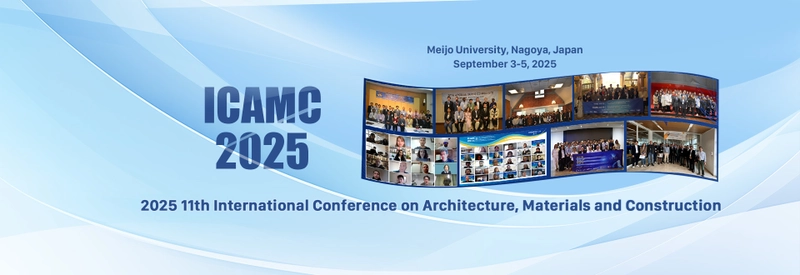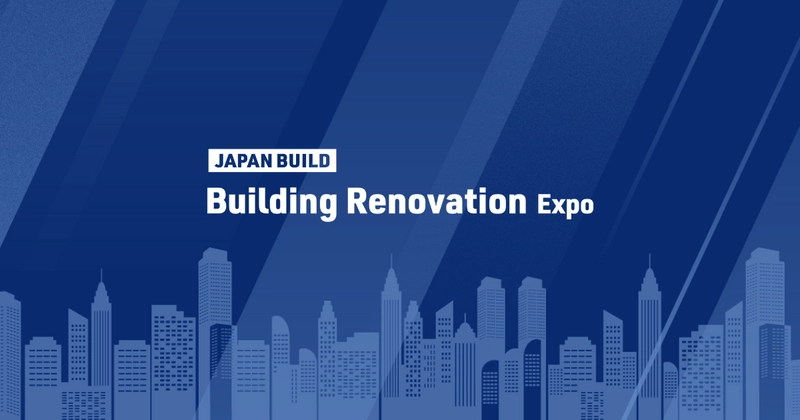Industrial Building Events in Japan


JAPAN BUILD
Japan Build: Pioneering Sustainable Construction and Smart Homes in Asia
The Japan Build event, held annually in Tokyo, has established itself as one of the most influential platforms for sustainable construction, innovative building technologies, and modern real estate solutions in Asia. Since its inception, the fair has attracted a professional audience eager to explore the latest trends in eco-friendly building materials, energy-saving technologies, and smart home innovations. The name “Japan Build” reflects the country’s prominent position in the construction and real estate sectors, emphasizing both its technological expertise and its commitment to environmentally conscious practices.
Organized by RX Japan Ltd., a leading exhibition organizer with decades of experience, Japan Build has grown to include a suite of seven specialized expos, each targeting a distinct niche within the construction and real estate industry. This structure allows participants to showcase products, solutions, and innovations to a highly focused audience of professionals, from architects and builders to real estate developers and technology providers.
The event is typically held at the Tokyo Big Sight, one of Asia’s most modern exhibition centers, offering state-of-the-art facilities and convenient access. Its central location allows attendees to combine business with the rich cultural and culinary experiences that Tokyo has to offer. Additionally, events at INTEX in Osaka extend the fair’s reach, underscoring its national significance in Japan’s construction and real estate sectors.
Seven Specialized Expos Under Japan Build
One of the distinguishing features of Japan Build is its multi-expo format, which provides tailored experiences for professionals with diverse interests. The seven expos include:
Building Material & Housing Equipment Expo – Focused on innovative materials, energy-efficient solutions, and the latest housing technologies.
Smart Home Expo – Showcasing automation, home management systems, and connected devices designed for convenience and energy efficiency.
Real Estate Tech Expo – Highlighting digital tools, property management software, and virtual solutions transforming the real estate industry.
Real Estate Expo – A platform for property developers, investors, and agents to explore trends in urban and residential development.
Retail Digital Transformation Expo – Introducing cutting-edge digital strategies for retail construction and commercial property management.
Smart Building Expo – Emphasizing automated systems, energy management, and sustainable architecture for modern office and commercial buildings.
Building Renovation Expo & Digital Construction Expo Japan – Covering renovation technologies, construction automation, and innovative digital solutions for project management.
Each expo not only allows companies to present their products but also facilitates business matchmaking and professional networking, enabling collaborations that drive innovation and efficiency in Japan’s construction sector.
Focus on Sustainability and Innovation
A central theme of Japan Build is sustainable construction. Exhibitors and participants gain insights into:
Eco-friendly building materials that reduce environmental impact
Energy-saving systems for residential and commercial buildings
Advanced energy management solutions for smart homes and commercial projects
Digital construction technologies that improve efficiency and reduce waste
By combining environmental consciousness with technological innovation, Japan Build reflects Japan’s dedication to sustainable development while fostering solutions that can be adopted globally. The fair demonstrates how construction and real estate can adapt to the challenges of energy efficiency, climate change, and urbanization.
Networking and Professional Opportunities
Japan Build attracts a highly specialized professional audience, including:
Architects, engineers, and builders seeking modern materials and construction solutions
Real estate developers looking for digital and sustainable innovations
Technology providers offering smart home devices, IoT integration, and automated systems
Investors and policymakers exploring trends in urban development and energy management
The fair provides a fertile ground for collaboration, knowledge exchange, and business growth, allowing participants to form long-lasting professional relationships. Interactive sessions, product demonstrations, and expert consultations add value beyond traditional exhibitions, giving attendees actionable insights and practical strategies.
The Advantage of Tokyo Big Sight
The Tokyo Big Sight serves as the ideal venue for Japan Build, combining modern exhibition halls with excellent transport connections. Its proximity to Tokyo International Airport ensures easy access for international participants, while the city itself offers a unique backdrop where innovation meets tradition.
The venue supports large-scale exhibitions with specialized zones for each of the seven expos, facilitating smooth navigation and a high-quality experience for visitors. Whether exploring smart building solutions or sustainable housing materials, attendees benefit from the comprehensive infrastructure and convenience provided by this world-class location.
Japan Build: Driving the Future of Construction
Ultimately, Japan Build represents a convergence of innovation, sustainability, and professional development. It highlights Japan’s leadership in eco-friendly construction while providing a platform for knowledge exchange and business growth. By integrating smart technologies, energy-efficient solutions, and sustainable materials, the fair encourages a holistic approach to modern construction.
For professionals in construction, real estate, and architecture, Japan Build is more than a trade fair it is a strategic destination for inspiration, innovation, and collaboration. From cutting-edge digital tools to sustainable building practices, the event equips participants with the knowledge and connections necessary to shape the future of Japan’s construction industry.
As the industry continues to evolve, Japan Build remains at the forefront, uniting expertise, technology, and environmental consciousness to foster a smarter, greener, and more innovative construction landscape.


Japan Home & Building Show
Japan Home & Building Show: Shaping the Future of Living Spaces at Tokyo Big Sight
The Japan Home & Building Show has earned its reputation as a premier platform for professionals, innovators, and enthusiasts in the fields of architecture, construction, and sustainable living. Held at the iconic Tokyo Big Sight in Koto, Japan, the event gathers global and domestic stakeholders under one roof to explore the latest in home and building design.
Whether you're an architect seeking inspiration, a builder sourcing new materials, or a developer scouting technologies that support smart, efficient living, the Japan Home & Building Show offers an unparalleled gateway into the future of construction and housing in Asia and beyond.
A Comprehensive Showcase of Design, Technology, and Sustainability
With an expansive exhibit space and a broad focus on modern lifestyle trends, the Japan Home & Building Show goes far beyond a traditional trade exhibition. It offers a deep dive into next-generation building materials, residential innovations, and eco-conscious design practices that are rapidly redefining the built environment.
Key themes presented throughout the exhibition include:
Smart home integration and connected living
Sustainable and energy-efficient building materials
Disaster-resilient architecture and urban planning
Modern construction methods including modular and prefabricated systems
Interior and exterior design trends that reflect Japan’s unique design sensibility
Attendees are encouraged not only to observe but to engage—through interactive displays, product testing zones, and idea exchange with experts and peers.
Connecting Experts Across the Construction Ecosystem
One of the show’s greatest strengths lies in its ability to bridge industries and disciplines. The Japan Home & Building Show serves as a collaborative space where manufacturers meet architects, developers connect with policymakers, and global brands engage with local builders.
This intersection of ideas creates genuine opportunities for innovation and partnership. Many attendees view the event not just as an exhibition, but as a launchpad for strategic discussions and long-term ventures.
Attendees benefit from:
Access to industry leaders sharing the latest trends and insights
Hands-on experiences with new technologies and materials
Live seminars and technical presentations tailored to professionals
Global networking opportunities with suppliers, designers, and investors
Whether you're seeking technical knowledge or new business prospects, this event ensures that every interaction is meaningful.
Innovation and Culture Intertwined in Every Detail
What distinguishes the Japan Home & Building Show from other international expos is the unique way it fuses technological advancement with cultural context. Japanese architecture and urban living continue to inspire designers around the world, thanks to their emphasis on minimalism, sustainability, and harmony with nature.
Visitors will find exhibits that highlight:
Traditional materials with modern applications
Compact space solutions for high-density urban environments
Water and energy-saving systems designed with climate resilience in mind
This cultural blend results in a show that doesn't just look to the future—it builds it with intention and respect for tradition.
Why the Japan Home & Building Show Should Be on Your Radar
In a time where the construction industry is challenged to meet demands for sustainability, digitalization, and rapid urbanization, the Japan Home & Building Show provides the insights and resources necessary to stay ahead. With its diverse exhibits, expert-led sessions, and emphasis on collaboration, the event is ideal for:
Builders looking to expand into the Japanese or Asia-Pacific markets
Architects and designers interested in blending innovation with heritage
Developers pursuing future-proof building practices
Technology providers introducing smart solutions for modern homes
Building Smarter, Living Better
As the global construction and design industries move toward cleaner, smarter, and more adaptive solutions, the Japan Home & Building Show remains at the forefront of that transformation. It’s more than a trade event—it’s a vision of how we can build more responsibly, design more thoughtfully, and live more sustainably.
For anyone invested in the future of home and building innovation, this event is an essential destination. Under the roof of Tokyo Big Sight, the possibilities for the next generation of living spaces are not only imagined—they’re realized.


Renovation Industry Fair
Renovation Industry Fair at Tokyo Big Sight: Where the Future of Renovation Takes Shape
In an age where sustainability, smart living, and adaptive reuse dominate the design landscape, the Renovation Industry Fair emerges as one of the most important events on the Asian real estate and construction calendar. Hosted at the iconic Tokyo Big Sight in Koto, Japan, this annual gathering is not just a showcase of materials and designs it is a forward-looking forum for architects, builders, interior designers, and developers who are shaping the future of living spaces across Japan and beyond.
Set against the backdrop of Japan’s deep respect for tradition and its relentless pursuit of innovation, the Renovation Industry Fair strikes a delicate balance: honoring the old while building the new. For anyone involved in modern renovation, adaptive reuse, or interior innovation, this fair is an unmissable opportunity.
Tokyo Big Sight: A Fitting Venue for Innovation
It’s no coincidence that the Renovation Industry Fair is held at Tokyo Big Sight, one of Asia’s largest and most architecturally distinctive exhibition centers. Located in the vibrant district of Koto, the venue itself is a symbol of modernity a fitting backdrop for a fair dedicated to rethinking spaces for a new generation.
Spanning several halls, the event layout allows visitors to move seamlessly between material showcases, smart renovation technologies, seminar rooms, and networking lounges. This format is intentionally designed to encourage interaction not just with products, but with people and ideas.
A Marketplace of Innovation: What to Expect
From eco-friendly materials to AI-powered remodeling software, the Renovation Industry Fair offers an expansive overview of what’s next in home and commercial renovation.
Featured exhibits include:
High-performance insulation and eco-building materials
Modular kitchens and smart appliances
Lighting solutions with energy optimization
Noise-reducing and thermal-regulating wall systems
Innovative bathroom and water-conservation products
Digital renovation platforms and project management tools
Heritage restoration and retrofitting solutions
This rich diversity reflects the multidimensional nature of modern renovation not only about design and aesthetics but also functionality, sustainability, and lifestyle enhancement.
Industry Insights Delivered by the Best
One of the most valuable aspects of the Renovation Industry Fair is its comprehensive seminar program. The event draws respected speakers from across the building and design industry, each offering deep insight into specific aspects of renovation, regulation, and real estate trends.
Key topics covered in seminars include:
Sustainable Renovation Strategies in Urban Japan
Smart Homes: Integrating IoT and AI in Legacy Buildings
Legal Frameworks for Large-Scale Property Refurbishment
Upcycling in Design: Materials, Methods, and Messaging
Aging Populations and Accessible Renovation Solutions
These sessions are tailored to both seasoned professionals and emerging talent, with practical case studies, live demonstrations, and Q&A forums that encourage meaningful exchange.
Who Should Attend the Renovation Industry Fair?
The event is crafted to serve as a convergence point for the many industries involved in renovation. Beyond showcasing products and services, it fosters collaboration between different professional disciplines.
Expected attendees include:
Architects and architectural firms
General contractors and renovation companies
Real estate developers and asset managers
Interior designers and stylists
Urban planners and municipal decision-makers
Materials and hardware manufacturers
Technology providers focused on smart housing
Facility managers and building maintenance firms
By drawing such a wide array of professionals, the fair becomes more than an expo it becomes a think tank for innovation in the built environment.
The Fair’s Emphasis on Sustainability
Japan has one of the highest building longevity rates in the world, and yet the demand for sustainable, energy-efficient renovation continues to grow especially in urban centers like Tokyo, Osaka, and Nagoya. This fair acknowledges that reality and places eco-consciousness at the heart of its message.
Exhibitors and speakers alike will focus heavily on:
Reducing construction waste through smarter material choices
Designing for longevity and adaptability
Integrating renewable energy solutions into existing structures
Using technology to monitor and reduce building emissions
Promoting circular design and upcycled materials
This sustainability focus resonates especially strongly in Japan, where minimalism, harmony with nature, and energy efficiency are both cultural values and urgent policy goals.
5 Reasons to Attend the Renovation Industry Fair
If you’re still considering whether to attend, here are five compelling reasons to add this event to your calendar:
Stay Ahead of Design Trends: Discover how Japanese aesthetics meet cutting-edge technology.
Meet Global and Local Suppliers: Find materials and solutions that match your current and future projects.
Learn from the Best: Access exclusive talks from the leaders shaping Japan’s renovation landscape.
Make Powerful Connections: Expand your network across sectors—design, real estate, construction, and tech.
Experience Tokyo’s Innovation Firsthand: Immerse yourself in the capital’s unique blend of tradition and progress.
Shaping Tomorrow’s Spaces, Today
As urban populations grow and environmental concerns deepen, renovation isn’t just a trend it’s a necessity. It’s about making better use of the spaces we already have, adapting them for new purposes, and ensuring they are resilient, efficient, and beautiful.
The Renovation Industry Fair at Tokyo Big Sight brings this mission to life. It’s where creativity meets craftsmanship, where tradition merges with transformation. Whether you’re a business leader, a designer, a builder, or simply someone passionate about the future of spaces, this event invites you to be part of a larger, smarter, and more sustainable renovation movement.


International Conference on Architecture, Materials and Construction
Shaping the Future: Insights from the International Conference on Architecture, Materials and Construction in Nagoya, Japan
The International Conference on Architecture, Materials and Construction recently held in Nagoya, Japan, offered a compelling look into the future of the built environment. Experts from around the world gathered to share research, case studies, and emerging trends that are reshaping how we build—physically and conceptually. The focus wasn’t just on stronger materials, but on smarter ones: solutions that balance durability, energy efficiency, and aesthetic potential while contributing to sustainable development goals.
A recurring theme throughout the event was the growing demand for multi-functional materials—those that go beyond traditional expectations. Today’s buildings are expected to regulate temperature, conserve energy, withstand harsh climates, and even purify air. Materials play a direct role in achieving all of this, and the conference demonstrated how the intersection of architecture, technology, and environmental responsibility is becoming increasingly central to construction.
High-Performance Materials for a Changing World
One of the core discussions centered around new building materials that exhibit advanced performance characteristics. These materials are no longer just passive elements of design; they are active participants in a structure’s lifecycle. Speakers from top universities and leading firms presented prototypes and field-tested solutions that deliver:
Increased strength and durability under extreme weather conditions
Improved thermal insulation to reduce energy consumption
Greater impermeability, especially for coastal and high-rainfall regions
Recyclability and lower environmental impact, aligning with circular economy goals
A particularly interesting presentation covered biomaterials that are engineered from agricultural waste yet possess high structural strength. These materials can be used for wall panels, flooring, and even load-bearing structures.
The Role of Functional Diversity in Modern Construction
The shift in societal needs—remote work, climate change, urban density—has redefined what buildings must offer. As noted in multiple sessions, functional diversity is now at the heart of modern architecture. Materials must not only meet static mechanical standards but respond dynamically to:
Changing internal and external temperatures
Acoustic requirements in mixed-use spaces
Visual integration with natural and urban landscapes
Health and well-being considerations for occupants
Key Material Innovations Presented
Photovoltaic glass that turns windows into solar panels
Phase change materials for regulating indoor temperatures
Self-healing concrete that reduces long-term maintenance
Nano-insulation layers that maintain slim profiles while maximizing performance
These innovations were not showcased as distant concepts, but as ready-to-use technologies that are already being adopted in pilot projects across Asia and Europe.
Toward Life Cycle Optimization and Circular Design
Another central pillar of the conference was the importance of life cycle optimization. Architects and engineers are increasingly expected to consider the environmental footprint of materials from extraction to disposal. Several sessions discussed tools and frameworks for measuring embodied carbon and assessing the total impact of a material throughout its life.
The Japanese context, with its vulnerability to earthquakes and aging infrastructure, provided a perfect backdrop to highlight the importance of adaptable, resilient, and reusable materials.
Essential goals for future-oriented building materials include:
Minimal carbon footprint during manufacturing
Long service life with minimal maintenance
Compatibility with recycling or upcycling systems
Safe degradation or reuse after demolition
The event also explored how digital technologies, such as BIM (Building Information Modeling), are being used to simulate a material’s entire lifespan before it even touches a job site.
The Broader Impacts of the Conference in Nagoya
Hosting the International Conference on Architecture, Materials and Construction in Nagoya was symbolic. Japan, with its rich architectural tradition and history of rebuilding after disasters, continues to influence global construction practices. The city itself, known for its technological innovation and attention to detail in design, offered a dynamic setting for these urgent discussions.
As global temperatures rise and urban populations swell, the need for smarter, more adaptable buildings becomes clear. This conference reaffirmed that materials are no longer just the bones of a structure—they are its intelligence, its resilience, and its future.


Building Renovation Expo
Building Renovation Expo: Innovation, Safety, and Sustainability in Japan’s Premier Renovation Trade Show
In today’s evolving built environment, renovation has taken center stage. Building Renovation Expo, one of Japan’s most specialized trade events, is leading the conversation around the modernization, safety, and sustainability of existing structures. Held annually in Japan, this event serves as a pivotal gateway to both the Japanese and broader Asian markets, providing a platform where key players in architecture, construction, and facility management connect and explore the latest renovation technologies.
The expo caters specifically to the growing need for renovation and rehabilitation of aging infrastructure, particularly non-residential buildings such as office towers, condominiums, hotels, and commercial centers. It highlights a full spectrum of solutions—from advanced repair materials and structural reinforcement systems to disaster prevention tools and smart facility signage. For developers, designers, engineers, and building owners, the event offers both inspiration and practical resources for transforming outdated properties into modern, safe, and energy-efficient spaces.
Focus Areas and Innovation on Display
Building Renovation Expo is known for its wide-ranging focus areas that span from aesthetic upgrades to large-scale engineering solutions. This diversity reflects the complexity of modern renovation projects, which often demand multidisciplinary approaches and custom strategies.
Attendees can explore exhibitions and demonstrations in the following core categories:
Structural repair and seismic retrofitting materials
Drone inspection services and remote maintenance technologies
Smart building systems and digital signage for tenant communication
Eco-friendly insulation, façade systems, and energy-saving upgrades
Fire safety systems and disaster preparedness tools
Space redesign and interior renovation planning
Security and access control for multi-unit buildings
The Expo places strong emphasis on integrated systems that combine function, aesthetics, and safety—key elements for any successful renovation project in dense urban environments like Tokyo or Osaka. With Japan’s frequent exposure to natural disasters, especially earthquakes, the event also showcases cutting-edge disaster prevention equipment that’s essential to protecting both assets and occupants.
Who Attends: A Professional Audience with Real Projects in Hand
Building Renovation Expo is not a general consumer event—it is laser-focused on B2B interactions. Its attendees represent a cross-section of the architecture, engineering, construction (AEC), and property management industries. The visitors are typically professionals with decision-making authority, attending with specific renovation needs and active project plans.
The audience includes:
Architects and interior designers seeking renovation materials
General contractors and engineering firms
Commercial property developers and facility owners
Asset managers and condominium administrators
Real estate investment trusts (REITs) and property consultants
Municipal planners and public-sector project teams
Manufacturers and distributors of renovation equipment
These participants attend the event not only to discover new solutions but also to initiate purchasing decisions, build partnerships, and meet with technical advisors.
Why Renovation Matters: The Asian Context
The rise in demand for renovation in Japan and across Asia is driven by several converging factors:
An aging stock of mid-century office and residential buildings
Rising environmental standards and pressure to reduce carbon footprints
Urban densification requiring more efficient space utilization
Increased awareness around disaster resilience and structural safety
Cost-effectiveness compared to new builds in high-density areas
In Japan particularly, many buildings constructed during the post-war economic boom are now several decades old. Instead of demolishing these structures, developers are turning to renovation as a sustainable, culturally sensitive alternative that preserves urban history while upgrading buildings to meet today’s safety and usability standards.
Educational Programs and Technology Demonstrations
In addition to its exhibition space, Building Renovation Expo features a robust lineup of seminars, product demos, and expert talks that give attendees deeper insight into renovation strategies, compliance standards, and emerging technologies. These sessions cover everything from legislative updates on seismic safety to the practical use of drones for façade inspections.
Popular themes include:
Retro-commissioning for energy efficiency
Preventive maintenance programs using AI and sensors
Innovations in waterproofing and anti-corrosion technologies
Renovation finance models and return-on-investment (ROI) insights
Government incentives and green building certifications
These programs are especially useful for building owners and managers looking to maximize building life cycles while minimizing operational disruptions and renovation costs.
Benefits of Attending Building Renovation Expo
For companies and professionals involved in property and infrastructure development, the benefits of attending the Building Renovation Expo are significant:
Exposure to specialized products not available at general construction fairs
First-hand demonstrations of repair materials and installation methods
Access to technical consultations from product developers
Opportunities to network with potential partners, buyers, or project collaborators
Insight into future market trends in Asia’s renovation sector
What makes this Expo particularly powerful is its targeted nature. It connects the right people with the right solutions, leading to genuine business opportunities and long-term industry connections.
Positioning Japan as a Leader in Renovation Technology
Japan’s commitment to excellence, safety, and precision is evident in the technologies on display at the Building Renovation Expo. Many of the featured solutions are developed by Japanese companies and are certified to rigorous national standards, making them ideal for use in high-stakes environments such as hospitals, schools, and government buildings.
The Expo also highlights Japan’s leadership in urban sustainability and earthquake-resistant construction. Visitors from other Asian countries attend to learn from Japan’s advanced renovation protocols and safety technologies, with many seeking to implement similar approaches in their own cities.
Building Renovation Expo as a Catalyst for Progress
Building Renovation Expo is more than a trade show—it is a catalyst for progress in the Asian built environment. It brings together innovation, responsibility, and real-world problem-solving in one high-impact event. By focusing exclusively on renovation and rehabilitation, it provides unmatched depth and relevance for professionals working to extend the life and value of the region’s urban infrastructure.
In an era where sustainability, safety, and efficiency are top priorities, Building Renovation Expo delivers the tools and knowledge needed to transform aging buildings into modern, resilient spaces ready for the future.